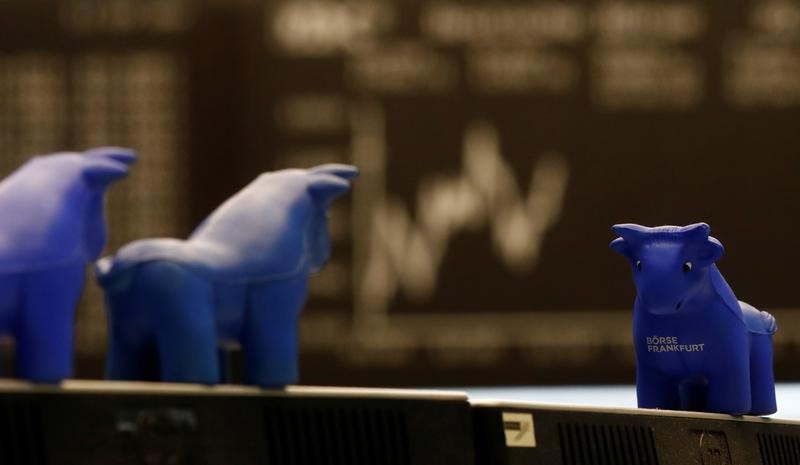By Peter Nurse
Investing.com - European stock markets traded marginally higher in tight ranges Tuesday, with investors wary ahead of keenly-awaited testimony from Fed chief Jerome Powell to Congress.
At 03:50 ET (08:50 GMT), the DAX index in Germany traded 0.1% higher, the CAC 40 in France climbed 0.1% and the FTSE 100 in the U.K. traded 0.1% higher.
European equities have traded in a subdued manner Tuesday, with the main focus of investors on the Federal Reserve Chair Jerome Powell's testimony before Congress, starting with the Senate Banking Committee later Tuesday.
Powell talked about a "disinflationary process" at his last press conference, but inflation has surprised to the upside since then and investors will be looking for any message about the future pace of interest rate increases.
Back in Europe, inflation has also proved to be stickier than previously expected, prompting Austrian central bank chief Robert Holzmann, a known hawk, on Monday to call for the European Central Bank to lift interest rates by 50 basis points at each of its next four meetings.
German factory orders rose 1% on the month in January, after gaining a revised 3.4% the prior month, with the manufacturing sector in Europe’s biggest economy providing grounds for optimism.
Additionally, U.K. house prices rose 1.1% in February, according to data from mortgage lender Halifax, pointing to resilience in the country’s property market despite several interest rate rises.
In the corporate sector, Brenntag (ETR:BNRGn) stock rose 2.2% after Bloomberg reported that the German chemicals distributor is considering buying back at least 5% of its shares.
Wood Group (LON:WG) stock soared 14% after the engineering services company said it has received a fourth bid from Apollo Global Management (NYSE:APO) and held the door open to talks with the U.S. private equity group, but said the new offer still undervalues the company.
Oil prices edged lower, falling back from multi-week highs on renewed optimism that China will see a strong economic recovery this year, resulting in increased crude demand from the world’s largest importer.
Crude prices were initially dented by a softer-than-expected Chinese GDP forecast for the year, but data released late Monday showed the Asian giant logged a record trade surplus in February.
The American Petroleum Institute, an industry group, releases its weekly estimate of U.S. inventories later in the session.
By 03:50 ET, U.S. crude futures traded 0.2% lower at $80.28 a barrel, near a three-week high, while the Brent contract fell 0.2% to $85.97, around a five-week high.
Additionally, gold futures fell 0.1% to $1,851.95/oz, while EUR/USD traded 0.1% lower at 1.0674.
